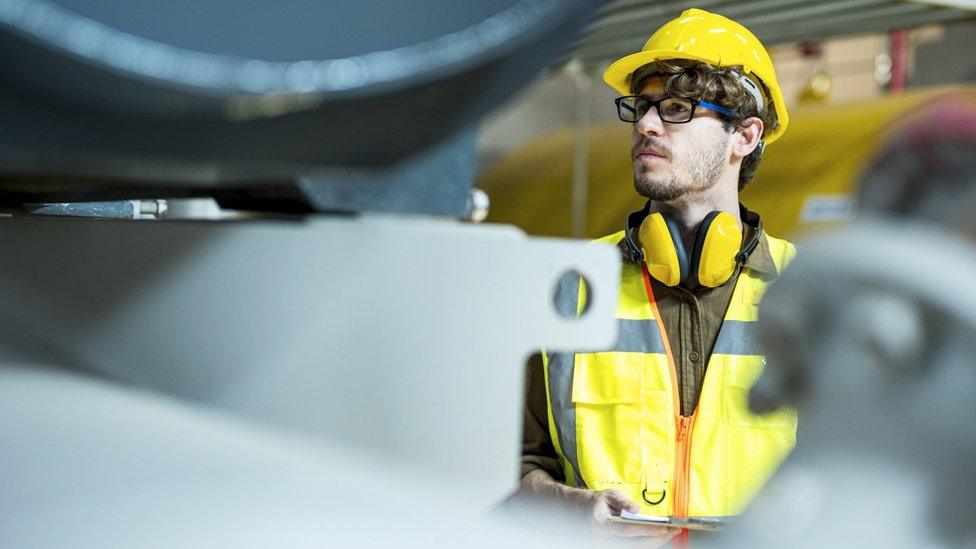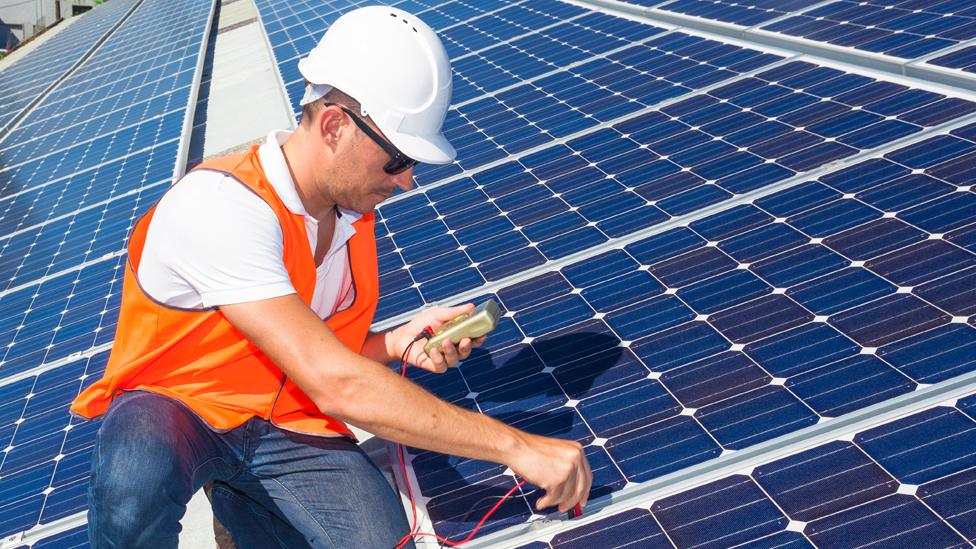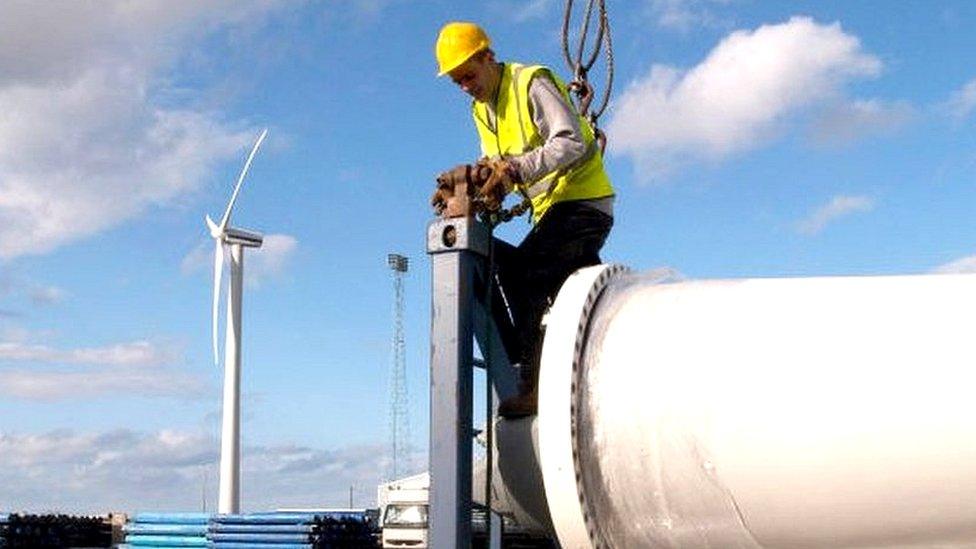Do more to spur investment, firms urge government
- Published

The CBI group is calling for a permanent "super-deduction" tax break to boost business investment in the UK.
The super-deduction allowance currently gives businesses investing in certain types of equipment, like machinery, a much higher tax reduction than usual.
It was introduced at the spring Budget last year, but is due to expire in March 2023.
"It's started the job but cannot be a one-hit wonder," CBI director general Tony Danker said.
The Treasury acknowledged the tax system has an important role to play in boosting business investment and innovation.
When the tax break was originally announced by Chancellor Rishi Sunak, external, it was described as necessary "bold, unprecedented action to get companies investing".
Between 2020 and 2021, business investment was 12% lower than 2019 pre-coronavirus pandemic levels, according to official figures, external.
Mr Danker said: "The chancellor's super-deduction exemplified the boldness in public policy that we need to inspire investment and get the economy moving."
"Evolving the policy from short-term fix into long-term strategy will give firms confidence that government and industry are aligned," he added.
The policy allows companies, but not individuals, to claim 130% relief against investments they make in new plant and machinery items between 1 April 2021 and 31 March 2023.
For example, if an eligible company spent £100,000 on computer servers, commercial vehicles or office furniture, they would be able to claim £130,000 against their profits subject to corporation tax.
Recent research by the CBI suggests that 53% of firms plan to claim the super-deduction.
Of the 325 companies it surveyed across different sectors, half said they would also revise future investment plans if the relief were made permanent.
The CBI suggests that a successor to the policy could boost UK business investment by up to £40bn a year by 2026.

It called on the government to consider the extension in an effort to increase productivity, particularly ahead of the upcoming rise in the corporation tax main rate to 25% for profits over £250,000.
"Firms are facing the highest tax burden in decades," Mr Danker said.
"But by rewarding firms who put money into their operations, we can unleash new innovation and productivity - the ingredients we need to escape the low-growth trap and build a stronger, sustainable and more equitable economic future."
The Institute for Fiscal Studies (IFS) has also previously said that the tax break seems "to have been chosen specifically to counteract this disincentive - allowing 130% of expenditure to be deducted with a 19% tax rate is almost exactly equivalent to allowing 100% of it to be deducted with a 25% tax rate."
But Stuart Adam, senior research economist at the IFS, warned last year that the relief could also be open to tax avoidance, or even fraud, "as companies essentially try to find ways to dress things up as plant and machinery investment to get this generous deduction".
The CBI is calling on the government to consider a permanent deduction of 100% as part of its proposals to boost economic growth.
In response to the CBI's new research, a Treasury spokesperson said: "The Chancellor announced the super-deduction last March to unlock business investment to spur our economic recovery from the pandemic - and the CBI's analysis reflects this.
"The super-deduction is helping to power our recovery, and we are the fastest growing economy in the G7 this year."
- Published22 November 2021

- Published19 October 2021
